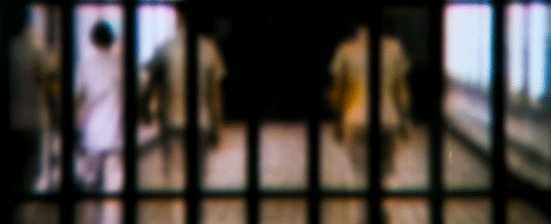Bhubaneswar: Expressing concern over the problems faced by the children of incarcerated parents, the State Government has extended a helping hand to take care of all such children of the State.
The Department of Women & Child Development (W&CD) has issued detailed guidelines for this purpose on Wednesday.
The children of incarcerated parents or primary caregivers are most likely to suffer adverse effects on their socio-emotional development. These children can be broadly divided into the category of children living in the prison with parents and children living ‘outside’ when the parents are incarcerated.
“The State Government has been committed to working on the essential task of ensuring the rights of children in all spheres of their lives. In this context, Odisha is laying down special attention to the above vulnerabilities of children who need care and protection,” read a notification issued by the W&CD Department.
The Department has come up with these guidelines to cover such children by strengthening its existing child protection mechanisms and introducing provisions to ensure that such children will be covered under the protection safety nets in line with the Juvenile Justice (Care and Protection of Children) Act 2015 and different National and State Schemes implemented by this Department.
The first category of children is in the age group of 0-6 years who are residing in the prisons with their incarcerated parent/mother.
The second category is children of incarcerated parents residing in the community including only those children whose parent/s have been incarcerated for a minimum period of 60 days and the child is staying outside the jail.
As per the notification, the children in the age 0-6 years staying inside the jail with his/her mother will avail the benefits of Integrated Child Development Scheme (ICDS). Period of incarceration of parent/s, whose children are staying outside and is intended to avail the benefit under the Scheme, should not be less than 60 days.
The children of incarcerated parents staying outside the jail and declared as Children Need of Care and Protection (CNCP) by the Child Welfare Committee (CWC) as mentioned in Juvenile Justice Act 2015, are also eligible to avail government benefits.
Benefits under ICDS programs will be extended to children residing in the prison between the age group of 0 to 6 years. Collectors will identify one nodal AWC for each prison which is nearest to it for extension of these facilities.
However, in case more children are housed in any prison, a temporary AWC as per jail manual will be set up. A worker from an existing AWC in the neighborhood with lesser children will be considered for attending to the temporary AWC. The children in jails will be provided with supplementary nutrition and immunization facilities as provisioned under ICDS, said the Department.
Further, children attaining the age of 6 years will be placed with guardian/ remaining parents with the consent of the mother. Otherwise, the child may be produced before the nearest CWC for rehabilitation.
The concerned District Child Protection Unit (DCPU) will facilitate appropriate counselling for children and parents inside the jail.
The children residing outside jails will be produced before the nearest/concerned CWC. If found CNCP, the child will be covered under different institutional and non-institutional care mechanisms available in the State, it said.
Under Non- institutional care the child in need will be linked to different schemes available in the State such as sponsorship, Biju Sishu Suraksha Yojana (BSSY) and foster care or any other scheme in force to continue to live in a family/community based care.
Based on the CWC order the child will be placed in Child Care Institutions (CCIs) running in the State looking into the best interest of the child. However, while doing this the principle of institutionalization as the last resort will be adhered to.
The W&CD Department further said that in exceptional cases, support from the Juvenile Justice Fund will be given to such children based on the recommendation of the Collector of the concerned district. Such children will also be supported to continue their education in Government institutions.
The jail administration will facilitate physical/virtual meeting/telephonic communication of the parent/s with the child at least once in a month, in coordination with the concerned DCPU.
In case of the children residing outside of the jail, concerned police officials while taking custody of a person or the jail administration in consultation with the incarcerated parents shall analyse the care provisions available for their children and collect information about the status of children.
The jail administration or the police will inform DCPU and CHILDLINE and ensure the production of child/children before the CWC of the district to which the child belongs.
If support is not required, the police or jail administration will send a written intimation to the CWC regarding children and their parent/guardian within 24 hours of the custody, says the Guidelines.
A case of a child will preferably be disposed of by the CWC within 15 days of receiving the application.
Wherever the rehabilitation of a child is essential, in terms of institutional or non-institutional care, the Child Welfare Committee will issue an appropriate order in the best interest of the child, it said.
However, if the child is found eligible for financial assistant under Sponsorship or Biju Sishu Surakhya Yojana or Juvenile justice fund, the DCPO will ensure that the financial benefit will reach to the child within one month of receipt of the application/information of the child.
CWC and DCPU will make a joint visit to the jail quarterly to monitor the care standards of children in jail and submit the report to the District Collector.


